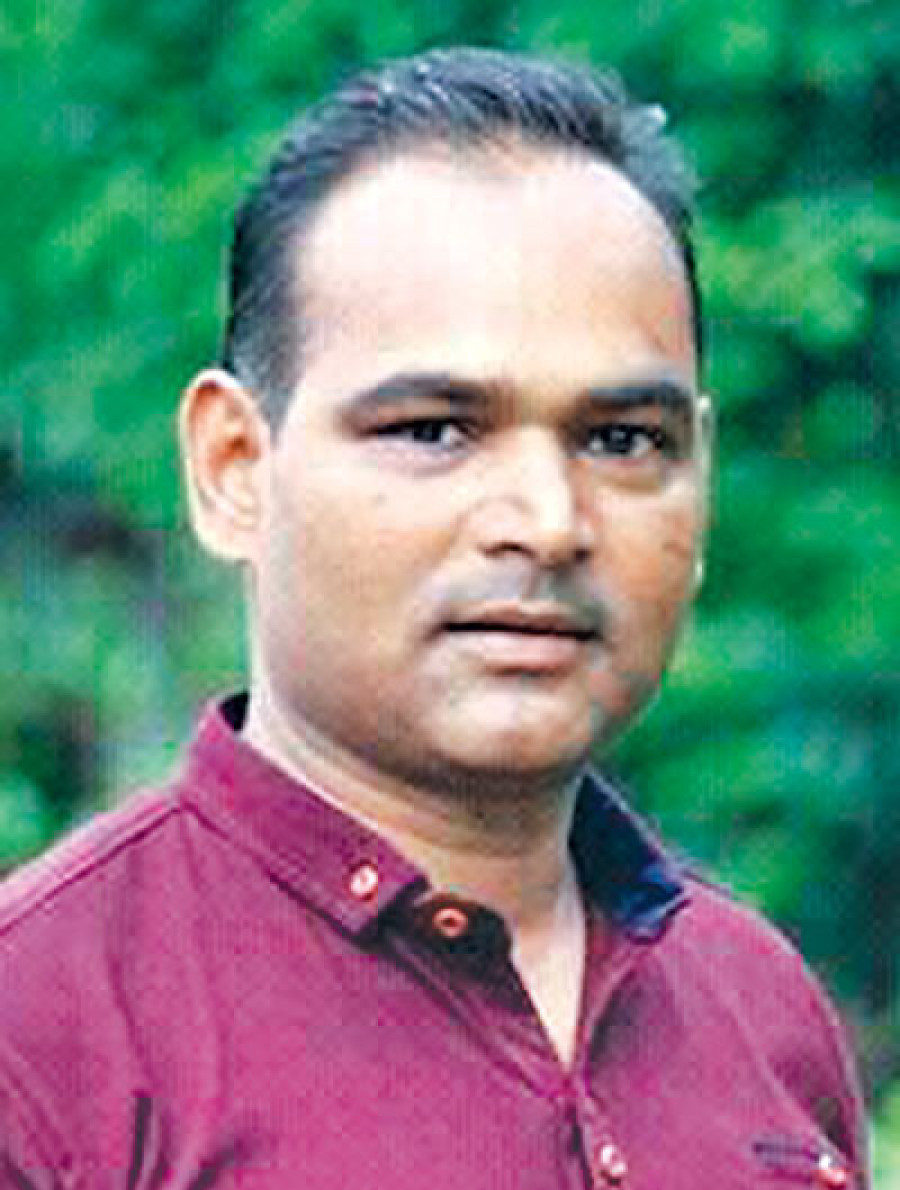Entertainment
Simple unpacking of complex themes
Ramlal Joshi is the recipient of this year’s Madan Puraskar—Nepal’s highest literary honour—for his book Aina. The author has also previously penned a collection of gazals, Hatkela ma Aakash. The Dhangadi-based writer also works as a teacher of language in his hometown. In this conversation with the Post’s Samikshya Bhattarai, Joshi talks about the honour of receiving the illustrious award, his book Aina and his reading habits. Excerpts:
Samikshya Bhattarai
Ramlal Joshi is the recipient of this year’s Madan Puraskar—Nepal’s highest literary honour—for his book Aina. The author has also previously penned a collection of gazals, Hatkela ma Aakash. The Dhangadi-based writer also works as a teacher of language in his hometown. In this conversation with the Post’s Samikshya Bhattarai, Joshi talks about the honour of receiving the illustrious award, his book Aina and his reading habits. Excerpts:
Congratulations. Can you tell us how you felt on winning the Madan Puraskar?
I am really proud of this achievement. In the context of Nepal, writers cannot go higher than the Madan Puraskar, so this is really exciting and overwhelming; not only for me, but for all the short-story writers. Not only that, but this is also an encouragement for writers based out of the mofussil. Most of the big writers and poets are primarily situated in the Valley, and this award goes to show that if you are true to your craft, it doesn’t really matter where you are based; accolades will come your way.
Tell us a bit about your book Aina and the inspiration behind it?
Aina as the title suggests is a mirror. It shows the real images of the far-western regions of the country. The book, which is the collection of 19 stories, shows the social and political situation of that region. It shows various aspects of the region, their problems, hardships, compulsions and many other factors, along with how difficult and different the livelihood is there.
Who are your favourite authors?
My favourite authors are BP Koirala, Ramesh Bikal and their contemporaries. I also love the poems by Laxmi Prasad Devkota and Lekhnath Poudel.
And the works by Madan Mani Dixit and Amar Neupane are also really good.
What is the last book you read and how did you like it?
I read Bhawan Hari Sigdel’s Aamoi which was really a good. I also read Rahul Sankrityayan’s Volga se Ganga and Manu Sharma Karna’s autobiography—all of them were really good.
What book do you plan to read next?
I plan on reading various stories based on the Mahabharat next. Today, there are many modern stories developed based on those historical tales and I want to read them as they provide an insight into history, as well as the present. I also want to read Babaram Acharya’s, Aba Yesto Khaile Nahos, as it deals with civilisation and the development of the humankind.
What do you think makes good writing?
I think good writer is someone who does a lot of investigation and has close interaction with people in the society. The writer should know about the shortcomings, problems and changes in the society, so they can create stories that will affect the reader and also help bring about positive change in the society. As per being a good writer, good language is a must. But good language doesn’t just mean using complicated words, but also using simple words in an artistic way. A good writer should be able to write about complicated things in a very simple way and be able to put out books that inspire the reader.
What is the one book that has inspired you?
The book Tarun Tapaswi by Leknath Poudel and Muna Madan by Laxmi Prasad Devkota has been the biggest sources of inspiration for me.
What are you working on next?
Right now, I am not exactly working on a book but I am planning to work on one very soon. I plan to write books on subjects that I haven’tyet explored. There are many stories and problems in our society; I plan to write a book including those elements.
What advice do you have for other bibliophiles?
There are many books in the market, so the readers should choose books wisely. They should read books on diverse topics and particularly those that are produced by authors from the margins.While popular authors are always fun to read, there are plenty of inspiring titles by lesser known authors. So my one advice would be to go out into the market and explore!




 14.38°C Kathmandu
14.38°C Kathmandu










